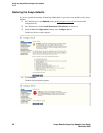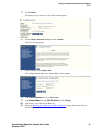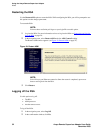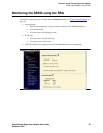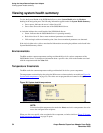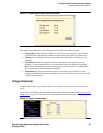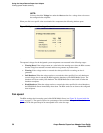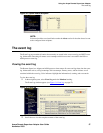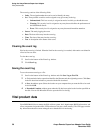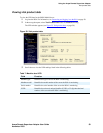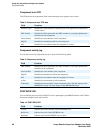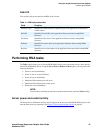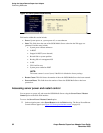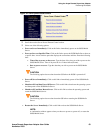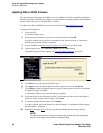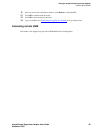
Using the Avaya Remote Supervisor Adapter
Vital product data
58 Avaya Remote Supervisor Adapter User Guide
November 2003
The event log consists of the following fields:
• Index: The assigned number that can be used to identify the entry.
• Sev: Three possible severities can be assigned to any given entry in the log:
• Informational: This low severity is assigned to entries in which you should take note.
• Warning: This severity level is assigned to any entry that could affect the performance of
the S8500 Media Server.
• Error: This severity level is assigned to any entry that needs immediate attention.
• Source: The entity logging the event.
• Date: The date of the entry into the event log.
• Time: The time of the entry into the event log.
• Text: A description of the nature of the event.
Clearing the event log
Size for the event log is limited. When the limit for the event log is exceeded, older entries are deleted in
a first-in, first-out order.
To clear the event log:
1 Scroll to the bottom of the Event Log window.
2 Click Clear Log.
Saving the event log
To save the current event log to a file:
1 Scroll to the bottom of the Event Log window and click Save Log as Text File.
2 A file download window opens that identifies the filename and the originating source. Click Save
in the file download window to proceed with the file download.
3 A Save As window opens. Select the location on your computer that you want the file to be saved
in and click OK.
4 A Download Complete window opens when the file has been copied to the location specified on
the disk. You can use MicroSoft Excel to open the file for viewing.
Vital product data
Upon S8500 Media Server startup, the RSA collects system, basic input/output (BIOS) information, and
server component vital product data (VPD) and stores it in non-volatile memory. The VPD page contains
key information about the remote managed server that the RSA is monitoring.



